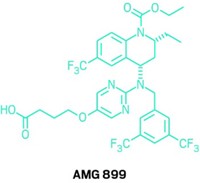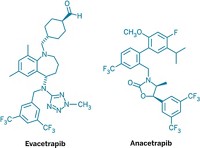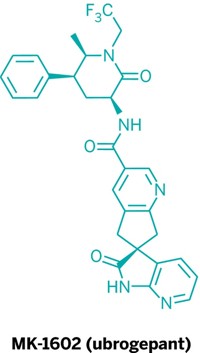Advertisement
Grab your lab coat. Let's get started
Welcome!
Welcome!
Create an account below to get 6 C&EN articles per month, receive newsletters and more - all free.
It seems this is your first time logging in online. Please enter the following information to continue.
As an ACS member you automatically get access to this site. All we need is few more details to create your reading experience.
Not you? Sign in with a different account.
Not you? Sign in with a different account.
ERROR 1
ERROR 1
ERROR 2
ERROR 2
ERROR 2
ERROR 2
ERROR 2
Password and Confirm password must match.
If you have an ACS member number, please enter it here so we can link this account to your membership. (optional)
ERROR 2
ACS values your privacy. By submitting your information, you are gaining access to C&EN and subscribing to our weekly newsletter. We use the information you provide to make your reading experience better, and we will never sell your data to third party members.
Pharmaceuticals
Costly Setbacks For Big Pharma
Pharmaceuticals: Bristol-Myers Squibb, Eli Lilly & Co. halt work on drug candidates
by Rick Mullin
August 31, 2012
| A version of this story appeared in
Volume 90, Issue 36
Citing the best interests of patients in Phase II clinical trials, Bristol-Myers Squibb has stopped development of BMS-986094, a nucleotide polymerase inhibitor for the treatment of hepatitis C. BMS acquired the compound with its $2.5 billion purchase of Inhibitex earlier this year.
BMS stopped the drug trials on Aug. 1 when one patient suffered heart failure. That patient subsequently died and eight others were hospitalized. The cause of these adverse events has not been completely established, BMS says, but the company has reported a $1.8 billion pretax impairment charge for the third quarter related to its decision to stop development.
Meanwhile, Eli Lilly & Co. announced that it will halt Phase III studies of pomaglumetad methionil, or mGlu2/3, for the treatment of schizophrenia after determining that the drug was not going to meet trial objectives. The company says the decision is not based on safety concerns. Lilly expects the move to result in a third-quarter charge of $25 million to $30 million.
Lilly also reported disappointments in Phase III trials of its Alzheimer’s disease drug candidate solanezumab. The company says decisions on future development of solanezumab will be made after consultation with regulators.
The cancellations show that drug development risks are shared by companies that purchase late-stage compounds and those that develop drugs entirely in-house, says Richard M. (Erik) Gordon, a business professor at the University of Michigan. “It is just a risky business because you are trying to do something medically difficult—cure really tough diseases without any side effects,” he tells C&EN.
BMS’s acquisition of Inhibitex is an “amazing” failure, Gordon adds, given that the deal hinged on just one molecule rather than a portfolio of drug candidates. “This is a $2.5 billion acquisition, and eight months later it’s probably really worth nothing,” he says. “I don’t think a CEO at any drug company is going to pull a trigger like that again very soon.”







Join the conversation
Contact the reporter
Submit a Letter to the Editor for publication
Engage with us on Twitter